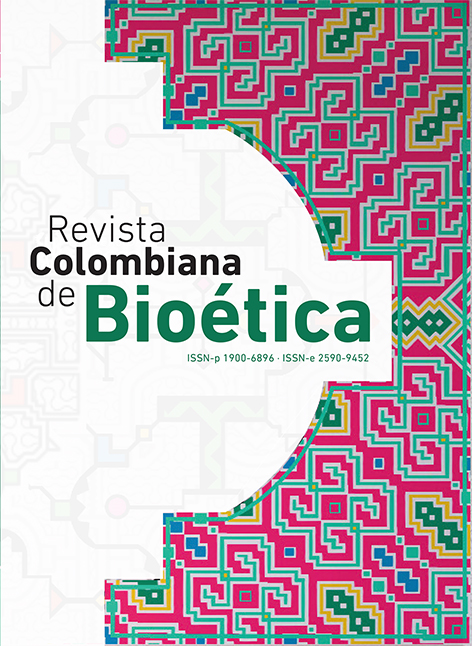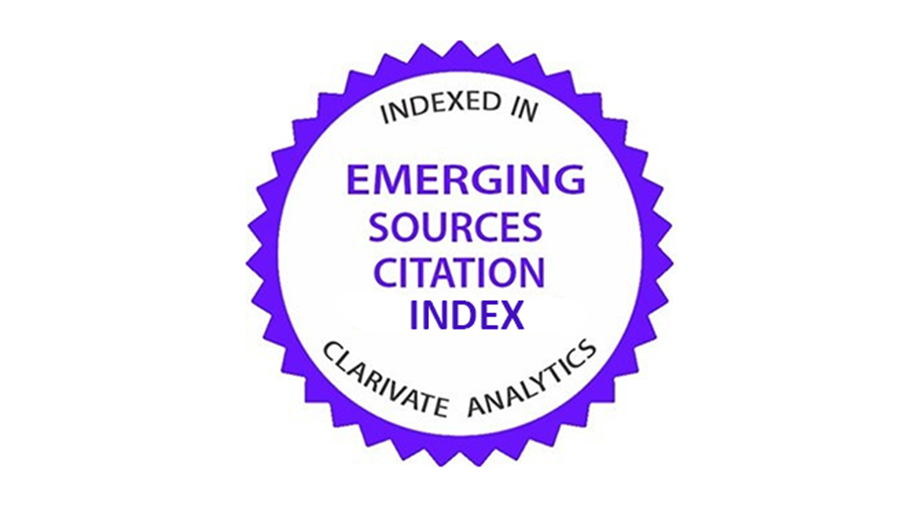Heritable Genome Editing
An Exploratory Study from the Bioethical Principle of Beneficence
DOI:
https://doi.org/10.18270/rcb.v15i1.2732Keywords:
CRISPR-Cas9, preventive genomics, gene therapy, genome improvement, bioethical principle of beneficenceAbstract
Purpose/Context. This article seeks to understand the meaning that the possibility of making genetic changes in human beings before birth would have for a group of individuals residing in Bogotá. The study focuses on the application of the CRISPR-Cas9 genome editing technique from the perspective of the bioethical principle of beneficence, i.e., to do the greatest good possible.
Method/Approach. First, the CRISPR-Cas9 technique and the bioethical principle of beneficence are theoretically reviewed. Then, international regulatory documents on genome editing are examined. Based on this, a video-based survey is administered to find out the hypothetical decision that a group of lay professionals would make on bioethical issues compared to a group of university students who have received bioethical training.
Results/Findings. Genome editing intended for prevention or therapy was approved by both groups, although with differences. Genome improvement was generally rejected for being immoral. However, both groups were open to accepting it but only as genome preparation for future generations due to the effects of climate change.
Discussion/Conclusions/Contributions. The bioethical principle of beneficence is insightful as it suggests both the private and common good. Moral reservations over heritable genome editing are also corroborated.
Downloads
References
2. Beauchamp, Tom., and Childress, James. (2013). Principles of Biomedical Ethics. Seventh edition. Oxford University Press.
3. Boddington, Paula. (2012). Ethical challenges in genomics research. Springer.
4. Cabero, Julio. (2002). La introducción del vídeo como instrumento de conocimiento en la enseñanza universitaria. Disponible en: http://tecnologiaedu.us.es/revistaslibros/Artg-ice2.html
5. Caro, Henry. (2018). Mejoramiento Deportivo Postconvencional, Cine y Bioética. The Journal of the Latín American Socio-Cultural Studies of Sport. Disponible en: https://revistas.ufpr.br/alesde/article/view/58983/3577
6. ________________ (2016). Posthumanismo, Cine y Educación: Journal “Philosophical Views” Thomson Reuters RID: Q-2899-2016. Disponible en: http://filozofski-pogledi.weebly.com/pogled-u-politiku
7. Casado, María., et al. (2016). Declaración sobre integridad científica en investigación e innovación responsable. Publicación en abierto patrocinada por el Máster en Bioética y Derecho UB. Recuperado de: www.bioeticayderecho.ub.edu/master
8. Consejo Nuffield de Bioética, (2018). Genome editing and human reproduction: social and ethical issues. Disponible en: http://nuffieldbioethics.org/
9. Costa, Flavia y Rodríguez, Pablo. (2017). La salud inalcanzable: Biopolítica molecular y medicalización de la vida cotidiana. Editorial EUDEBA.
10. Declaración del Comité de Bioética de España sobre la edición genómica en humanos. (2019). Disponible en: http://www.bioeticayderecho.ub.edu/es/declaracion-del-comite-de-bioetica-de-espana-sobre-la-edicion-genomica-en-humanos
11. Doudna, Jennifer. (2016). How CRISPR lets us edit. Our DNA. Disponible en: https://www.ted.com/talks/jennifer_doudna_we_can_now_edit_our_dna_but_let_s_do_it_wisely?language=es
12. Encuesta: Edición genómica en reproducción humana. (2016). Consejo Nuffield de Bioética. Disponible en: http://nuffieldbioethics.org/wp-content/uploads/Genome-editing-survey-preview.pdf
13.Genome editing. (2016). Nuffield Council on Bioethics. Disponible en: http://nuffieldbioethics.org/wp-content/uploads/Genome-editing-an-ethical-review.pdf
14. Guertin, Lauren, McGuire, Robert and Torres, Alessandra: (2018). Public Perception of Human Applications of CRISPR Gene Editing. Degree of Bachelor of Science. Worcester Polytechnic Institut. Disponible en: https://web.wpi.edu/Pubs/E-project/Available/E-project-042618 095556/unrestricted/CRISPR_full_draft.FINAL3.0.pdf
15. Hendriks, S. et al. (2018). Reasons for being in favour of or against genome modification: a survey of the Dutch general public. Hum Reprod Open. (3): hoy008. Published. doi: 10.1093/hropen/hoy008
16. Lander, et al. (2019). Adopt a moratorium on heritable genome editing. Nature: International Journal of Sciences. Disponible en: https://www.nature.com/articles/d41586-019-00726-5?utm_source
17. Lopez, Javier. (2013). La mejora genética ¿el dopaje del siglo XXI? En: II Congreso Internacional de Bioética” Bioética, neuroética, libertad y justicia”. Universidad de Valencia. 1275-1290.
18. Lorda, Pablo., Couceiro, Azucena y Barrio Cantalejo, Inés. (1999). Una Metodología de Análisis de los Problemas Bioéticos. Disponible en: http://www.rlillo.educsalud.cl/Capac_Etica_BecadosFOREAPS/Una%20metodologia%20de%20analisis%20de%20los%20problemas%20bioeticos%20P%20Simon.pdf
19. Missa, Noël. (2019). Conferencia inaugural: Gilbert Hottois. Universidad Libre de Bruselas. XXV Seminario Internacional de Bioética: Dimensiones Globales de la Bioética. Doctorado en Bioética, Universidad El Bosque. Bogotá.
20. Ormond, Kelly et. al. (2017). Human Germline Genome Editing. Journal List Am J Hum Genet. v.101(2): 167–176. Published online. Doi: [10.1016/j.ajhg.2017.06.012]
21. Romeo, Carlos. (2011). Nuevos horizontes de la investigación genética. Bilbao: Universidad Deusto.
22. Santaló, Josep. (2017). Edición genómica. La hora de la reflexión - Rev. Bio y Der. 157-165. Ed. Barcelona.
23. Seitz, Joshua. (2018). Striking a Balance: Policy Considerations for Human Germline Modification. Santa Clara Journal of International Law. Disponible en: https://digitalcommons.law.scu.edu/cgi/viewcontent.cgi?article=1225&context=scujil
24. Vilas Boas Reis, Émilien y Torquato de Oliveira, Bruno. (2019). CRISPR-CAS9, Bioseguridad y bioética: un análisis jusfilosófico-ambiental de la ingeniería...Veredas do Direito, Belo Horizonte, V. 16 no. 34 p. 123-152. Janeiro/Abril.
25. Wildhaber, Thomas., Rion Logean, Séverine y Nabholz, Christoph: (2017). CRISPR – Hacking the biological hard drive. Swiss Re Risk Dialogue Series: Genomic medicine.
26. UNESCO. (2005). Declaración Universal sobre Bioética y Derechos Humanos. Organización de las Naciones Unidas para la Educación, la Ciencia y la Cultura. http://portal.unesco.org/es/ev.phpURL_ID=31058&URL_DO=DO_TOPIC&URL_SECTION=201.html
27. Knoppers, et al. (2018). Human Genome Editing. Ethical and policy considerations – policy brief. b.m. Centre of genomics and policy (cgp) mcgill university and génome québec innovation centre montréal, mars.
Downloads
Published
How to Cite
Issue
Section
License
Copyright (c) 2020 Revista Colombiana de Bioética

This work is licensed under a Creative Commons Attribution-NonCommercial-NoDerivatives 4.0 International License.

Esta obra está bajo licencia internacional Creative Commons Reconocimiento-NoComercial-SinObrasDerivadas 4.0.















